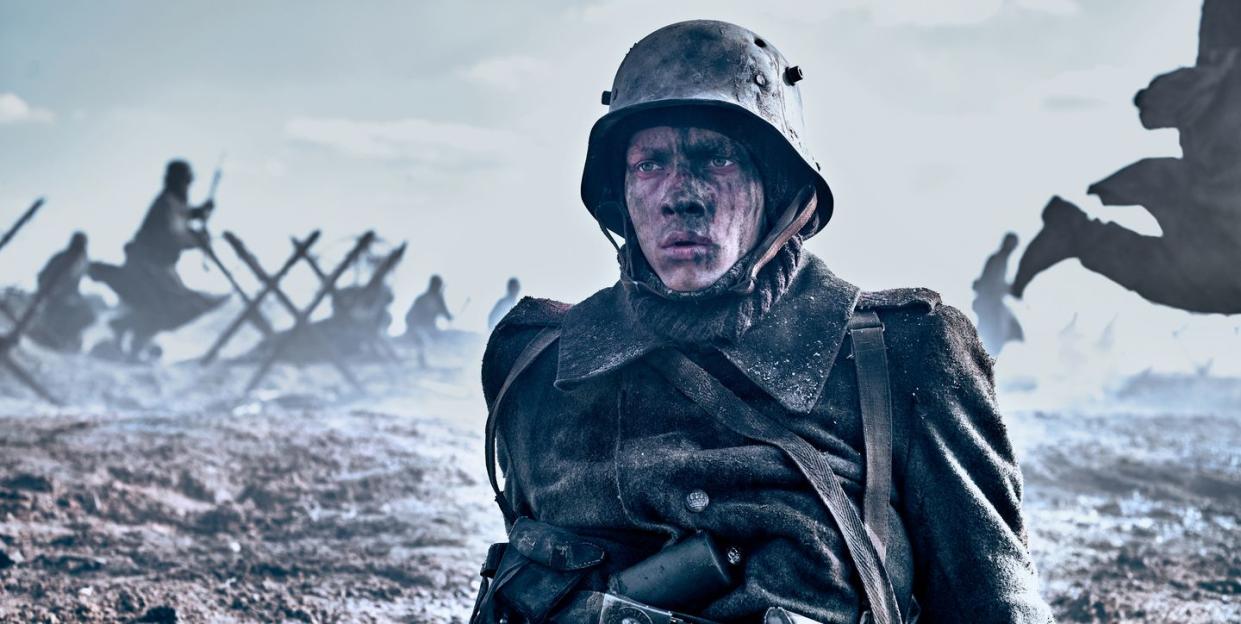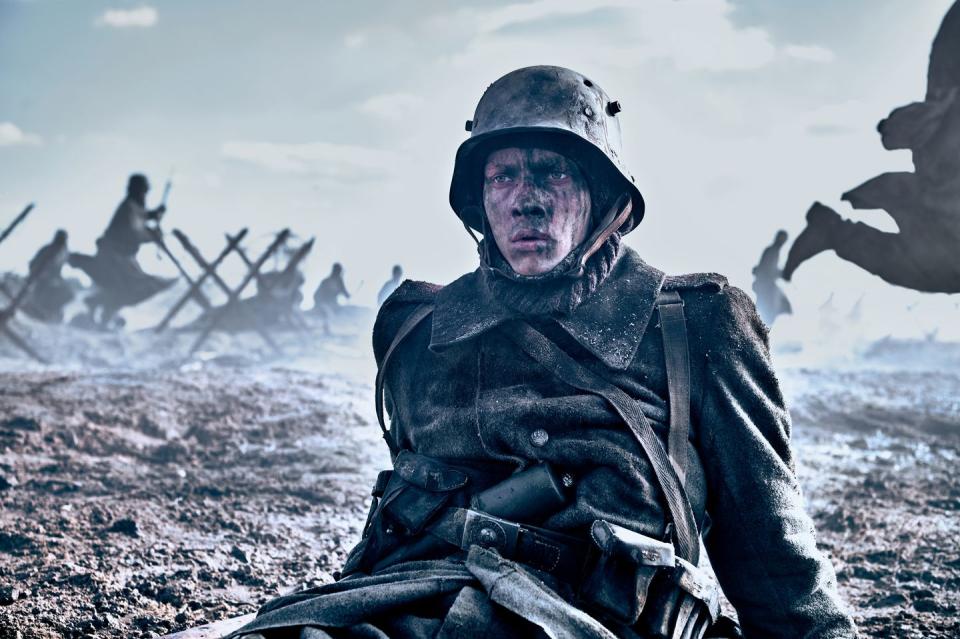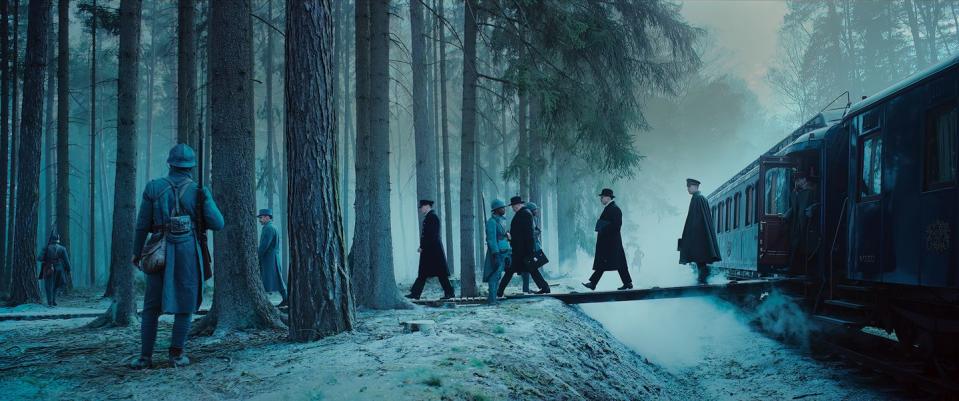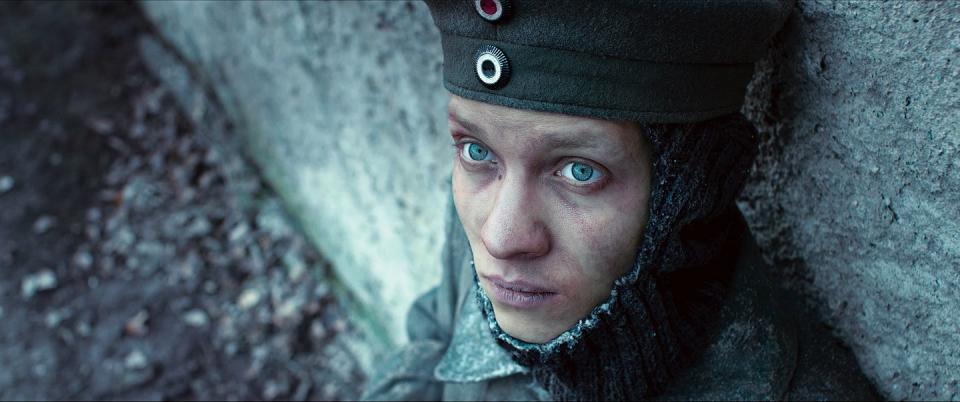What All Quiet on the Western Front changed from the book

All Quiet on the Western Front spoilers follow.
All Quiet on the Western Front performed beyond anyone's expectations at this year's BAFTAs, taking the mantle of non-English language film to hold the most BAFTA awards — seven. (Cinema Paradiso previously held it with six wins.) The Netflix anti-war film is based on the German novel of the same name and has received overwhelmingly positive reviews from critics.
The movie, however, took major liberties with its source material, published in 1927 by World War One veteran Erich Maria Remarque, to the chagrin of many German critics. Whether you believe that a film can ever be as good as or, dare we suggest better, than the book is up to you.
Undoubtedly, though, All Quiet on the Western Front is a feat of filmmaking that has been (in our opinion, rightly) lauded. But, how much of it is based on truth, how much of it is based on the novel, and how much is movie magic?

The bones of the story are the same — and, likely, represent the very real life of soldiers in the German army during the first world war. Our protagonist Paul Bäumer is young and naive, lured to the army by the pull of German pride and the promises of a swift and glorious victory.
Paul and his schoolmates head to the front and are swiftly embroiled in the horrors of trench warfare. An older soldier named Stanislaus "Kat" Katczinsky unofficially takes Paul under his wing, and Paul quickly becomes disenchanted with the propaganda-driven fantasies about war.
The film adds a plotline about the politicians negotiating the armistice, which is not present in the book. In addition, the book has an entire section in which Paul returns home on leave, finding himself completely alienated from his life and family.

While the latter storyline isn't present in the movie, the themes at the heart of that moment are teased out in a conversation between Paul and Kat while sitting on a latrine. Kat laments his return, despite wanting desperately to be reunited with his wife, knowing that he'll never quite fit back into the life he used to lead.
The biggest departure from the book is the ending. In both, Paul dies, however it is the manner of his death that is drastically different.
The original sees Paul wholly giving up on any semblance of hope or optimism with the death of all of his friends, including Kat. He is subsequently killed on a day that was uncharacteristically peaceful. The epilogue reads: "He fell in October 1918, on a day that was so quiet and still on the whole front, that the army report confined itself to the single sentence: all quiet on the western front."

It is a haunting and deeply upsetting end, though we could imagine it was harder to translate to film. Instead, the movie makes use of the armistice plot to bring about a sense of morbid irony in Paul's death.
We see politician Matthias Erzberger (the real politician who represented the Reich government and signed the armistice between Germany and the Allies) negotiating the armistice which is agreed to take effect at 11 am. However, the war-hungry General Friedrichs (Devid Striesow) sends his men into battle at the last second, wanting to finish the war with a German victory.
It is in this pointless and time-bound battle that Paul is killed. As the bells chime 11 for the armistice, Paul stumbles out of a foxhole and sees the sun before collapsing and dying. His body is discovered by a young recruit, whom Paul himself had given instruction to in the battle previously.

Like in the book, in our opinion anyway, Paul's expression is the calm of a man who is "almost glad the end had come." The book was lauded (and subsequently banned by Nazis) for its anti-war message, and the brutal reality of war laid bare by its author.
The movie, too, is replete with themes of the senselessness of war, the intimacy of violence, and the total upending of humanity that takes place in battle. So even if you're a staunch believer that the book is always better, we can't imagine coming away from this film not being deeply moved.
All Quiet on the Western Front is now available to watch on Netflix
You Might Also Like

 Yahoo Movies
Yahoo Movies 
